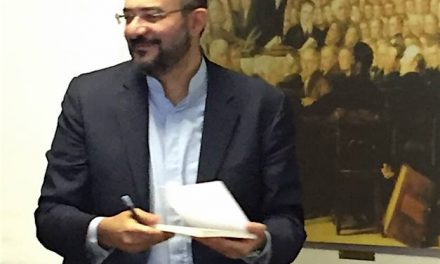
In his well-known book, Al-Hikam (Words of Wisdom), sheikh Ahmad Ibn `Ataa’illah As-Sakandari says:
A person, who learns of people’s secrets and does not have Godly mercy on them, brings upon himself great danger and disaster.
When one’s knowledge and awareness increase, he will find himself in situations and incidents where he gets involved in many social matters, and starts to learn about people’s secrets, faults, and problems. One comes to know people’s secrets when he/she is consulted about some problems or becomes an arbitrator in certain disputes on the individual, family, or society’s levels. Another source of knowledge is experience and insight that one gains with time, which allows one to judge people’s nature and real character based on their outward appearance and what is between the lines of their speech or writing.
Learning people’s secrets and their weaknesses is a form of power over them. A believer who happens to learn people’s secrets should learn how to deal with them. The Sheikh says here: “A person, who learns of people’s secrets and does not have Godly mercy on them, brings upon himself great danger and disaster”.
First of all, one should not feel that he is authorized by God to act as a judge or have an illusion of a great mission to establish justice based on the secrets he/she came to know.
Secondly, what one should do is to have what the Sheikh called ‘Godly mercy’ on others involved in the secrets. And Godly mercy requires that one should not reveal people’s faults. God is the One who conceals people’s faults. A man called Ma`iz came to the Prophet (peace and blessings of Allah be upon him) confessing that he committed adultery. Hazzal, the Companion, said: “I saw him and ordered him to confess”. The Prophet then said,
It would have been better for you if you had covered him with your robe, Hazzal. (Abu Dawud)
It is a major sin to reveal people’s faults or use their faults against them. The Prophet (peace and blessings of Allah be upon him) is reported to have said,
A believer who conceals) the faults of others in this world, God would conceal his faults on the Day of Resurrection. (Muslim)
Thirdly, having Godly mercy on people also requires that you advise people and call them to do good deeds with a view of correcting their faults. This is how the Prophet (peace and blessings of Allah be upon him) behaved with the hypocrites after God told him about what they hid in their hearts:
{As for them – God knows all that is in their hearts; so leave them alone, and advise them, and speak unto them about themselves in a gravely searching manner.} (An-Nisa’ 4: 64)
When God Himself commands us to do something, His commandments are conveyed in a most gentle way. God says in a hadith,
If they offer repentance, I will surely love them. If they do not repent, I will be like their physician who helps them with their diseases until they are recovered.
Thus, having Godly mercy on people also requires, like a physician, to follow a gradual course in treating people’s diseases. A physician also tries different medicines until a certain medicine works out. A good physician resorts to surgery, only as the very last option.
Finally, having Godly mercy on people requires that you free yourself from any personal interest when you handle people’s secrets or information which you learn about them. As mentioned earlier, learning people’s secrets gives power over them. An ignorant person might exploit this power for his own interests. This contradicts the concept of Godly mercy which urges one to overlook his own interests and aims only at fixing and correcting people’s behavior for their own sake.
A person who does not have mercy on people after learning about their faults, might find himself falling into tyranny, arrogance, conceit, envy, and suspicion. All these traits are dangerous and destructive, and are punishable both in this world and the world to come. Therefore, the Sheikh says: “A person, who learns of people’s secrets and does not have Godly mercy on them, brings upon himself great danger and disaster”. This word of wisdom is reinforced by the hadith in which the Prophet (peace and blessings of Allah be upon him) says,
No sin has a faster Divine punishment than the sin of injustice. (Reported in Musnad Abi Hanifah)
The original situation is: {do not spy} (Al-Hujurat 49: 12). But if one finds himself in a situation where people’s secrets are revealed before him, he should have Godly mercy on them as the Sheikh says. Otherwise, he will be journeying backward not forward to God.
=====
ٍSource: www.onislam.net — Ibn Ataa’s Pearls of Wisdom — Jasser Auda






